
Scarborough: The Heartbeat of Tobago
Nestled on the southwestern coast of Tobago, Scarborough is a vibrant and picturesque town that serves as the island's capital. This charming city is a blend of colorful markets, historical sites, and stunning natural beauty, making it an ideal destination for tourists seeking a mix of culture and relaxation. Begin your adventure at the iconic Fort King George, a well-preserved colonial fort offering panoramic views of the town and the azure waters beyond. The fort's museum provides a fascinating glimpse into Tobago's history, from its indigenous peoples to its colonial past. Just a short walk away, the Scarborough Botanical Gardens offer a serene escape with lush tropical flora and a variety of bird species. The bustling Scarborough Market is a must-visit for those wanting to experience local life. Here, you can find fresh produce, handmade crafts, and delicious street food. Don't miss the chance to try local delicacies such as doubles and roti. The market is a sensory feast, with vibrant colors, lively chatter, and the enticing aroma of spices. For beach lovers, Scarborough does not disappoint. Pigeon Point Beach, known for its pristine white sand and crystal-clear waters, is perfect for swimming, snorkeling, or simply lounging under a palm tree. The nearby Nylon Pool, a natural swimming pool in the middle of the sea, is another unique attraction that should not be missed. Scarborough is also a gateway to exploring the rest of Tobago. Whether you're interested in hiking through the Main Ridge Forest Reserve, diving at Buccoo Reef, or enjoying a boat tour around the island, Scarborough provides the perfect starting point for your adventures. With its rich history, vibrant culture, and stunning landscapes, Scarborough truly captures the essence of Tobago.
Local tips in Scarborough
- Visit Fort King George early in the morning to avoid the crowds and enjoy the best views.
- Carry cash when shopping at Scarborough Market as many vendors do not accept cards.
- Plan a visit to Pigeon Point Beach on weekdays to avoid the weekend rush.
- Wear comfortable walking shoes as the town is best explored on foot.
- Try local dishes like doubles and roti for an authentic taste of Tobago.
- Book boat tours in advance, especially during peak tourist season.
Scarborough: The Heartbeat of Tobago
Nestled on the southwestern coast of Tobago, Scarborough is a vibrant and picturesque town that serves as the island's capital. This charming city is a blend of colorful markets, historical sites, and stunning natural beauty, making it an ideal destination for tourists seeking a mix of culture and relaxation. Begin your adventure at the iconic Fort King George, a well-preserved colonial fort offering panoramic views of the town and the azure waters beyond. The fort's museum provides a fascinating glimpse into Tobago's history, from its indigenous peoples to its colonial past. Just a short walk away, the Scarborough Botanical Gardens offer a serene escape with lush tropical flora and a variety of bird species. The bustling Scarborough Market is a must-visit for those wanting to experience local life. Here, you can find fresh produce, handmade crafts, and delicious street food. Don't miss the chance to try local delicacies such as doubles and roti. The market is a sensory feast, with vibrant colors, lively chatter, and the enticing aroma of spices. For beach lovers, Scarborough does not disappoint. Pigeon Point Beach, known for its pristine white sand and crystal-clear waters, is perfect for swimming, snorkeling, or simply lounging under a palm tree. The nearby Nylon Pool, a natural swimming pool in the middle of the sea, is another unique attraction that should not be missed. Scarborough is also a gateway to exploring the rest of Tobago. Whether you're interested in hiking through the Main Ridge Forest Reserve, diving at Buccoo Reef, or enjoying a boat tour around the island, Scarborough provides the perfect starting point for your adventures. With its rich history, vibrant culture, and stunning landscapes, Scarborough truly captures the essence of Tobago.
When is the best time to go to Scarborough?
Iconic landmarks you can’t miss
Chaguaramas Boardwalk
Discover the beauty and vibrant culture of Chaguaramas Boardwalk in Trinidad, where stunning views and local cuisine await every visitor.
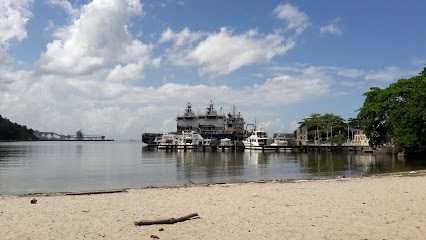
Mount St. Benedict Abbey
Experience tranquility and rich cultural heritage at Mount St. Benedict Abbey, a serene retreat in Saint Augustine, Trinidad and Tobago.
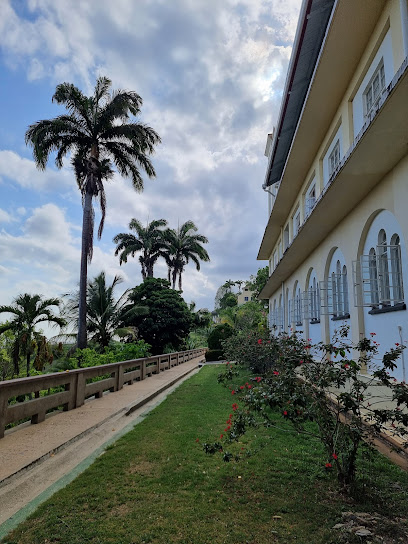
Fort King George
Explore Fort King George, Tobago: A historic landmark with stunning views and rich colonial history awaits you.
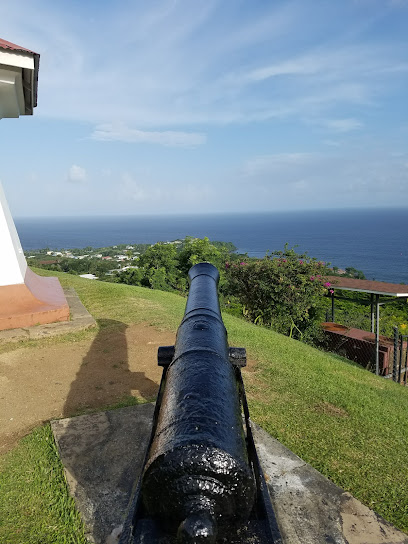
Tobago Plantations
Experience the perfect blend of luxury and nature at Tobago Plantations, a tropical paradise in Lowlands, Tobago.
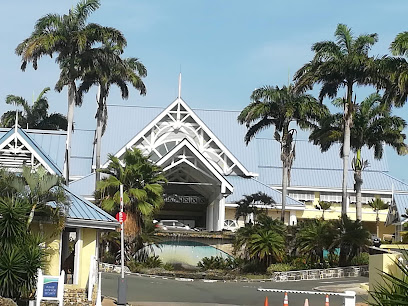
Lopinot Historical Complex
Discover the captivating history and stunning landscapes of Lopinot Historical Complex in Trinidad, a must-see for culture and history enthusiasts.
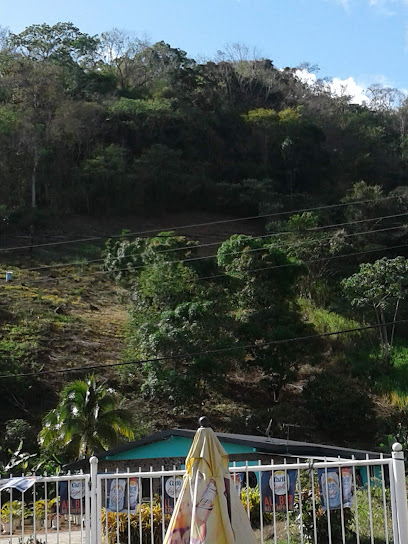
Galera Point Lighthouse
Explore Galera Point Lighthouse, a stunning historical site offering breathtaking coastal views and a glimpse into Trinidad's maritime heritage.
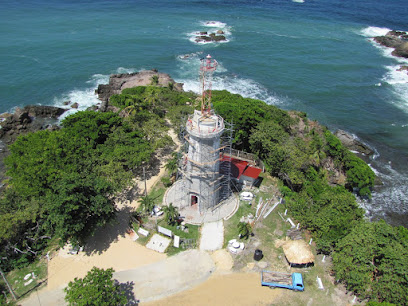
Starfish Tobago
Experience the beauty and tranquility of Starfish Tobago Resort - your perfect beach getaway in the heart of Scarborough, Trinidad and Tobago.

Argyle Falls
Explore the enchanting beauty of Argyle Falls, a natural paradise in Tobago, where cascading waters meet lush tropical landscapes for an unforgettable experience.
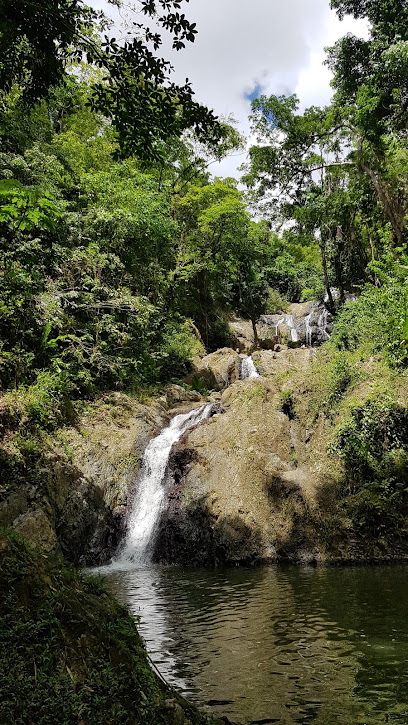
Port of Scarborough
Discover the vibrant culture and stunning views at the Port of Scarborough, your gateway to the breathtaking islands of Trinidad and Tobago.
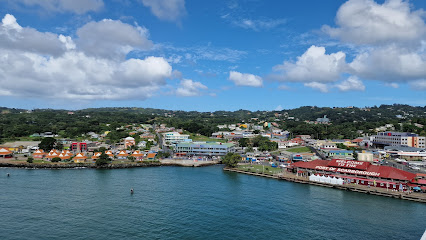
Scarborough Botanical Garden
Explore the vibrant flora and tranquil pathways of Scarborough Botanical Garden, a must-visit oasis for nature lovers in Trinidad and Tobago.
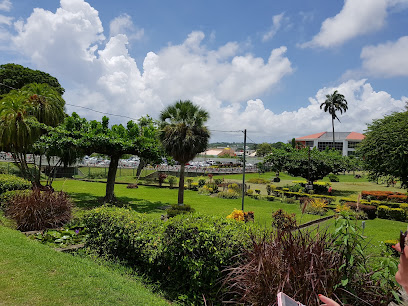
Fort Bennett
Explore the historical significance and breathtaking views of Fort Bennett, a must-visit site in Tobago for history lovers and nature enthusiasts.
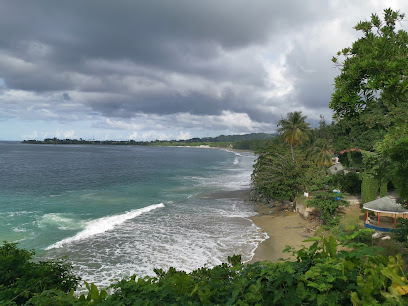
La Vigie Paramin Lookout
Discover the stunning panoramic views at La Vigie Paramin Lookout, a scenic hideaway in Trinidad offering breathtaking landscapes and tranquility.
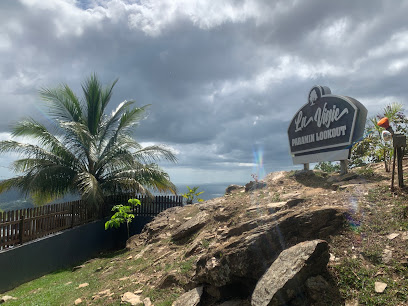
Shaw Park Cultural Complex
Discover the heart of Tobago's performing arts at the Shaw Park Cultural Complex, where culture and creativity come alive.
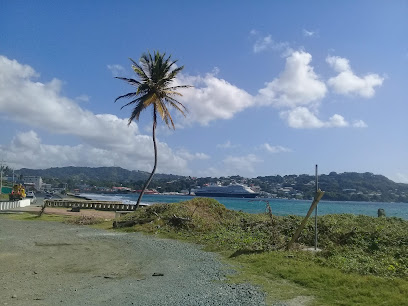
Fort Milford
Uncover the historical treasures of Fort Milford in Tobago, a captivating site filled with colonial charm and stunning coastal views.
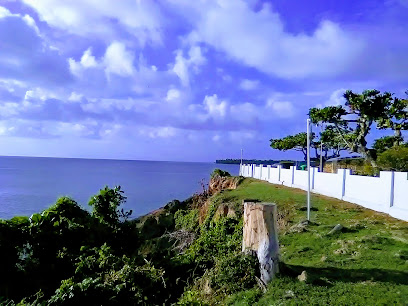
I Love Tobago Sign
Experience the vibrant spirit of Tobago at the iconic 'I Love Tobago' Sign, a must-visit landmark for unforgettable photos and cultural connections.
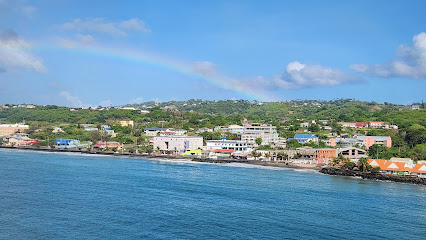
Unmissable attractions to see
Fort King George
Discover the historical significance and stunning views at Fort King George, a must-visit landmark in Scarborough, Tobago.
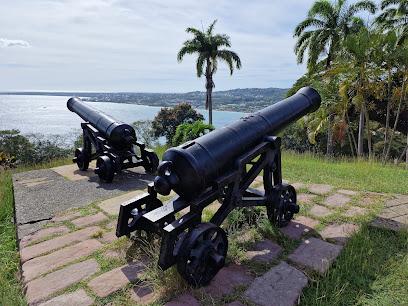
Tobago Plantations
Experience the lush beauty and recreational activities at Tobago Plantations, your tropical getaway in Lowlands, Trinidad and Tobago.

Argyle Falls
Immerse yourself in the natural beauty of Argyle Falls, a stunning waterfall in Roxborough, Trinidad and Tobago, perfect for adventure, relaxation, and photography.

Scarborough Botanical Garden
Immerse yourself in the lush landscapes of Scarborough Botanical Garden, a tropical haven showcasing Tobago's vibrant flora and rich biodiversity.
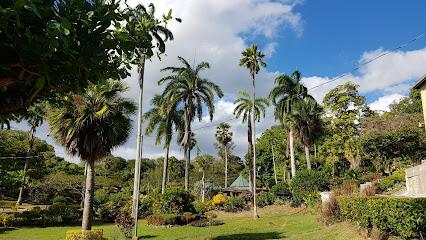
Pigeon Point Beach
Experience the enchanting beauty of Pigeon Point Beach, Trinidad's top destination for relaxation and water sports amidst stunning scenery.
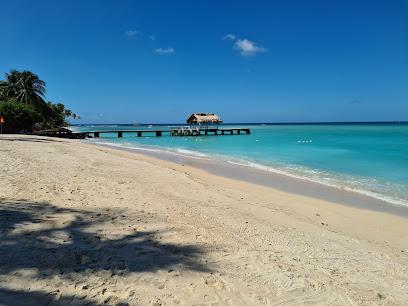
Fort Bennett
Discover the historical charm of Fort Bennett in Black Rock, a captivating site showcasing Trinidad's colonial past and breathtaking coastal views.
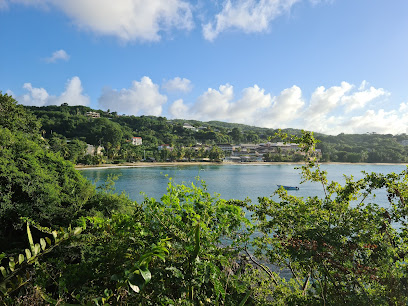
Fort Milford
Explore the historic Fort Milford in Crown Point, Trinidad and Tobago, where colonial history meets stunning coastal views.
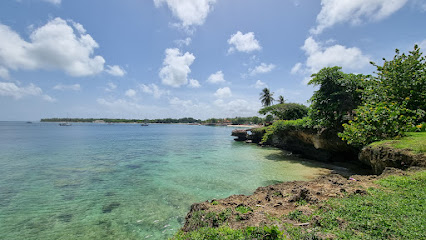
Englishman's Bay
Experience the tranquil beauty of Englishman's Bay, a hidden paradise in Trinidad perfect for relaxation, adventure, and unforgettable sunsets.
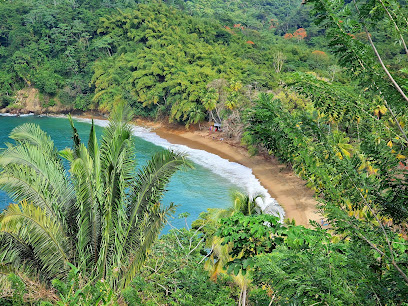
I Love Tobago Sign
Discover the vibrant I Love Tobago Sign in Scarborough, a must-see landmark for unforgettable photos and authentic island experiences.

Woodford Square
Explore the historical charm of Woodford Square in Port of Spain, a vibrant hub of culture and community in Trinidad.
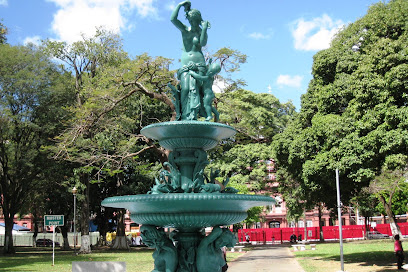
Fort James
Explore the rich maritime history of Trinidad and Tobago at Fort James, a stunning coastal fort and museum in Plymouth.
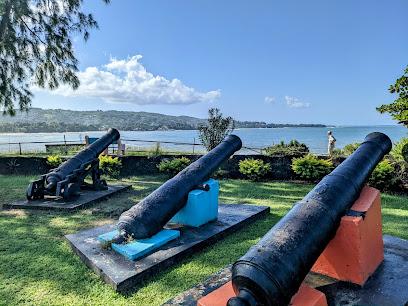
Pirate's Bay
Experience the untouched beauty and tranquility of Pirate's Bay in Charlotteville, Tobago - a perfect beach escape for relaxation and adventure.
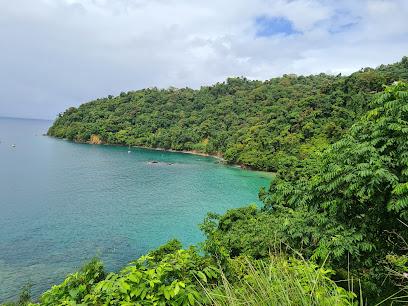
Castara Waterfall
Explore the serene beauty of Castara Waterfall, a hidden gem in Tobago that offers stunning scenery and a peaceful retreat for nature lovers.
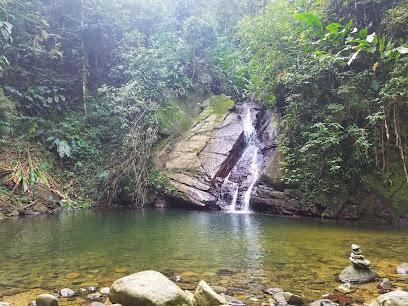
Tobago Main Ridge Forest Reserve
Explore the breathtaking biodiversity and serene landscapes of Tobago Main Ridge Forest Reserve, a must-visit nature preserve on your Caribbean adventure.
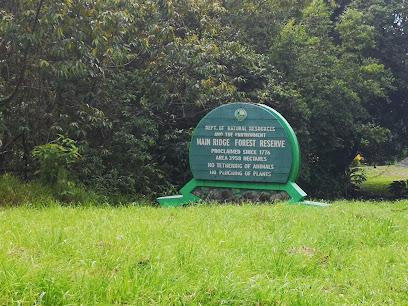
Archbishop’s House
Discover the Archbishop’s House in Port of Spain, a historical site showcasing stunning Victorian architecture and deep cultural roots.
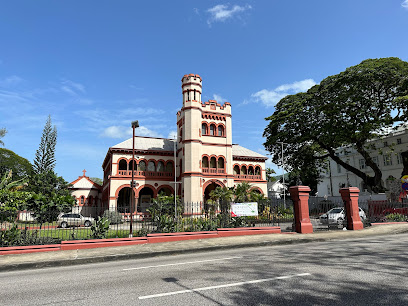
Essential places to dine
Barcode
Experience the vibrant culinary scene at Barcode in Scarborough - where local flavors meet lively atmosphere!
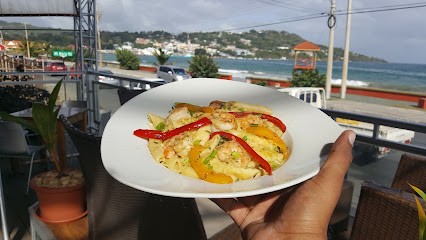
MayLin Chinese Restaurant
Experience authentic flavors at MayLin Chinese Restaurant in Scarborough - where every dish tells a story.

Rena Chatack
Experience the rich and diverse flavors of India at Rena Chatack in Scarborough - where every dish tells a story.
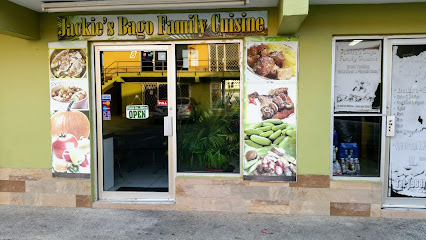
Japia Roti Diner
Experience authentic Caribbean cuisine at Japia Roti Diner in Scarborough, where every dish tells a flavorful story.
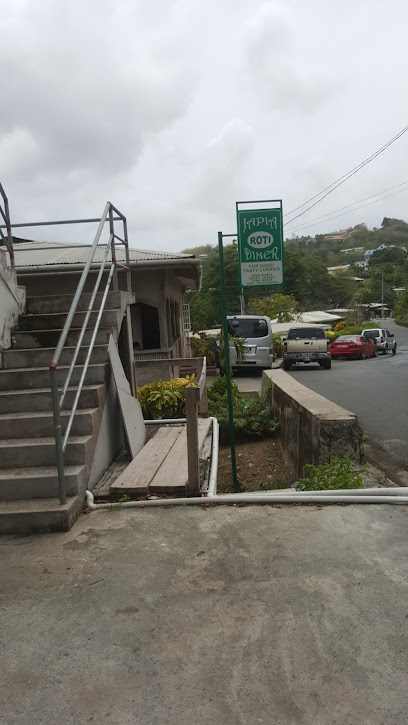
Bliss Restaurant & Lounge
Experience the best of Caribbean cuisine at Bliss Restaurant & Lounge in Tobago - where flavors meet stunning views.
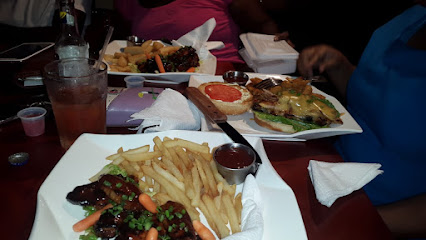
Church's Texas Chicken
Experience authentic Southern comfort food at Church's Texas Chicken in Lower Scarborough - where every bite is packed with flavor.

Blue Crab
Experience authentic Trinidadian seafood at Blue Crab in Scarborough – where culinary excellence meets local charm.
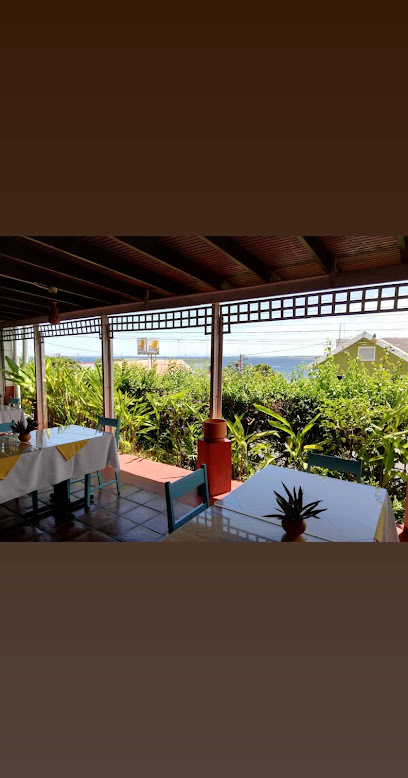
Jackie's bago family cuisine
Experience the rich flavors of Tobago at Jackie's Bago Family Cuisine - where authentic Caribbean cuisine meets warm hospitality.
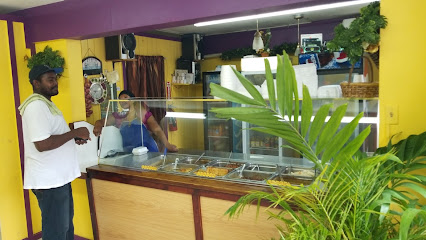
My Kitchen
Experience delicious burgers at My Kitchen in Scarborough – where local flavors meet casual dining excellence.

Chefs & BBQ
Discover delicious barbecue delights at Chefs & BBQ in Scarborough - where flavor meets tradition!
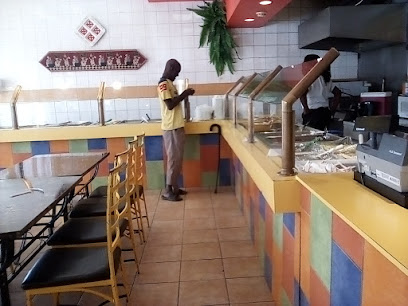
Patsy's Doubles
Experience authentic Trinidadian street food at Patsy's Doubles - where every bite tells a story!
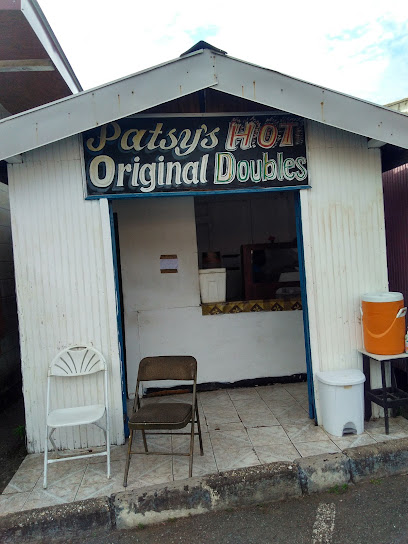
Drifterz Bar And Grill
Experience the vibrant flavors of Trinidad at Drifterz Bar And Grill in Scarborough - where local cuisine meets lively atmosphere.
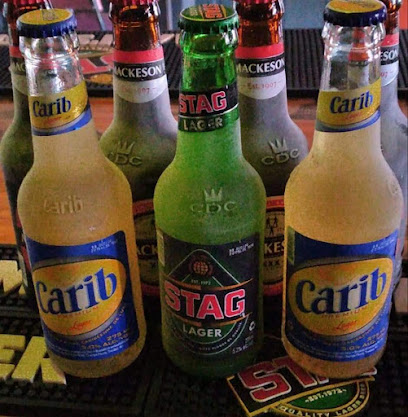
Oasis Salad Bar & Grill
Discover fresh flavors at Oasis Salad Bar & Grill in Scarborough – your go-to spot for healthy dining with local flair.
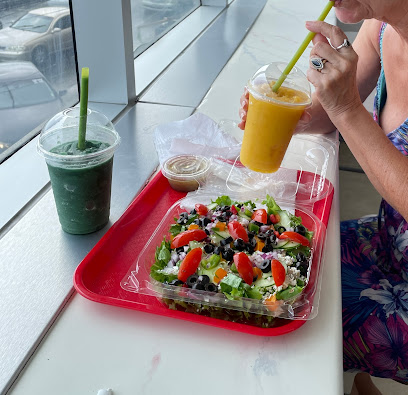
Cafe Havana
Experience delightful local flavors at Cafe Havana in Scarborough – where every meal tells a story of culinary passion.
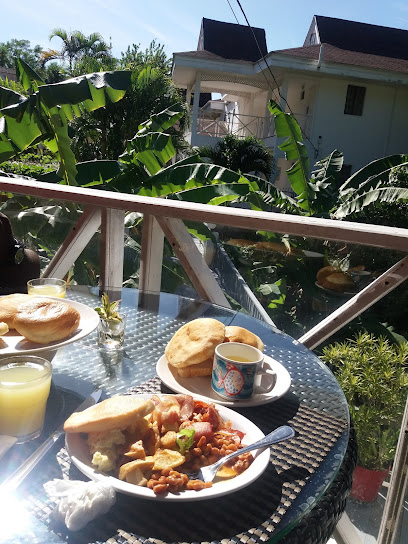
Lal's Roti Shop
Discover authentic Trinidadian cuisine at Lal's Roti Shop in Scarborough – where every bite tells a story.
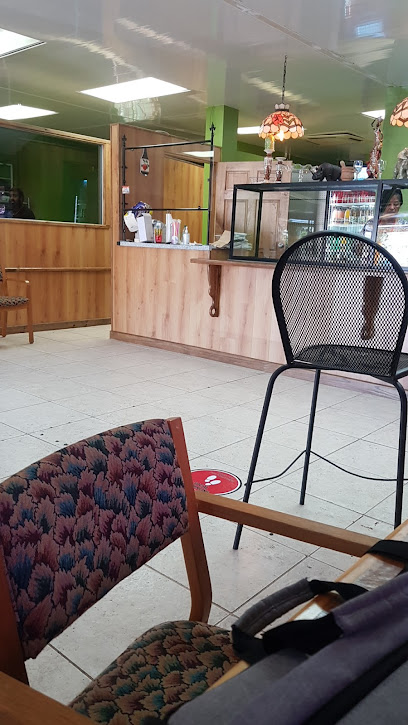
Markets, malls and hidden boutiques
Edwards Store
Explore Edwards Store in Scarborough for an authentic shopping experience, blending local culture with vibrant retail options for tourists.
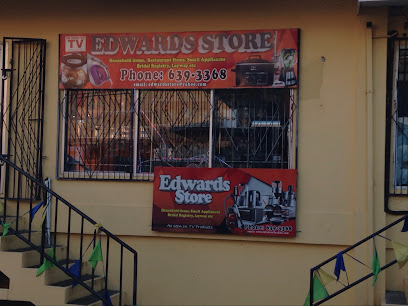
Angeleyes Organic Beauty Products
Explore sustainable fashion at Angeleyes Organic Beauty Products in Scarborough Market, offering eco-friendly clothing and organic beauty solutions.
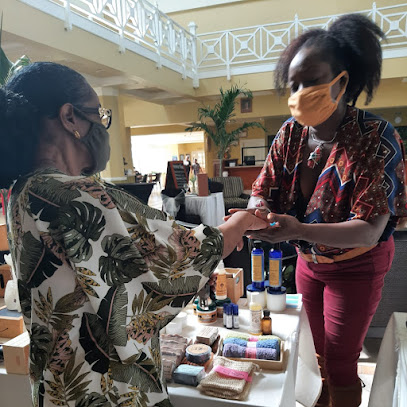
Kissed Cosmetics
Explore Kissed Cosmetics in Scarborough, Tobago, for premium beauty products that celebrate local culture and enhance your natural beauty.

Batiki Point
Discover local crafts and unique souvenirs at Batiki Point, Scarborough's premier shopping mall for handmade gifts and authentic Trinidadian culture.

Gift Land
Discover unique gifts and party supplies at Gift Land, Scarborough's premier destination for memorable shopping experiences.

AngelEyes Boutique and Gift Shop
Explore AngelEyes Boutique and Gift Shop for unique gifts, local artisan crafts, and a taste of Trinidad and Tobago's vibrant culture.

Bourgeois Boutique
Explore the exquisite fashion and unique accessories at Bourgeois Boutique in Scarborough, a true reflection of Trinidadian elegance.

Spence Plaza
Explore Spence Plaza: A lively shopping destination in Scarborough showcasing local crafts, delicious food, and vibrant culture.
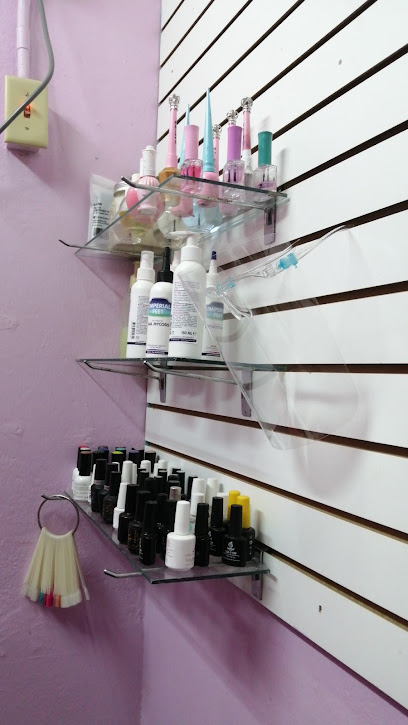
H
Explore unique and stylish children's clothing at My Tobago Sanctuary in Scarborough - a boutique experience for families visiting Tobago.
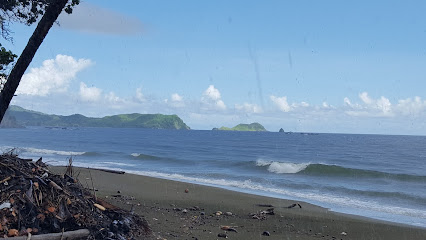
American Stores
Explore the charm of Scarborough at American Stores, your destination for unique furniture accessories that reflect local culture and style.

ABC Culture
Explore ABC Culture in Scarborough: a vibrant bookstore that celebrates Trinidad and Tobago's literary heritage with a rich collection for every reader.

The Exclusive House of Fashion
Discover stylish and affordable clothing at The Exclusive House of Fashion, a must-visit shopping destination in Scarborough for fashion-savvy tourists.

Zac Gems
Discover unique fashion finds at Zac Gems in Scarborough, where style meets local charm and every piece tells a story.
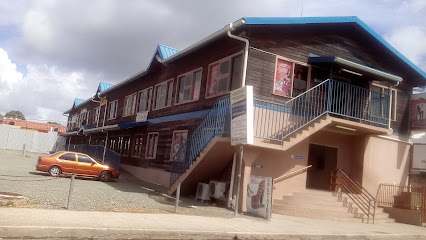
Classic Curves Boutique
Discover unique fashion at Classic Curves Boutique in Scarborough, where local culture meets stylish clothing for every occasion.

La Petite Femme
Explore the unique styles of La Petite Femme, a charming clothing store in Scarborough, where local fashion meets Caribbean flair.

Essential bars & hidden hideouts
Barcode
Discover the vibrant atmosphere and delicious cuisine at Barcode, Scarborough's premier bar and restaurant offering an unforgettable dining experience.
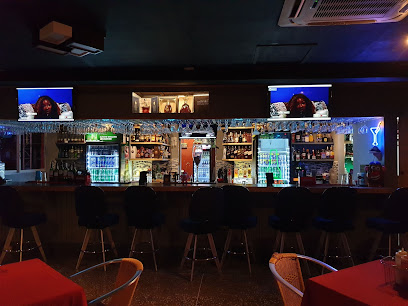
Bliss Restaurant & Lounge
Experience the culinary delights of Bliss Restaurant & Lounge in Tobago, where local flavors meet international cuisine in a vibrant atmosphere.
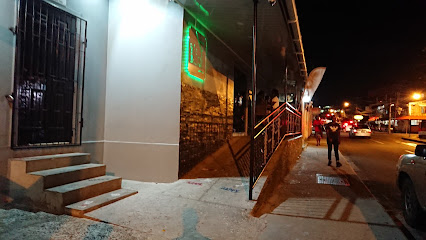
Blue Crab
Experience the best of Tobago's seafood at Blue Crab, a charming restaurant in Scarborough known for its exquisite crab dishes and warm hospitality.
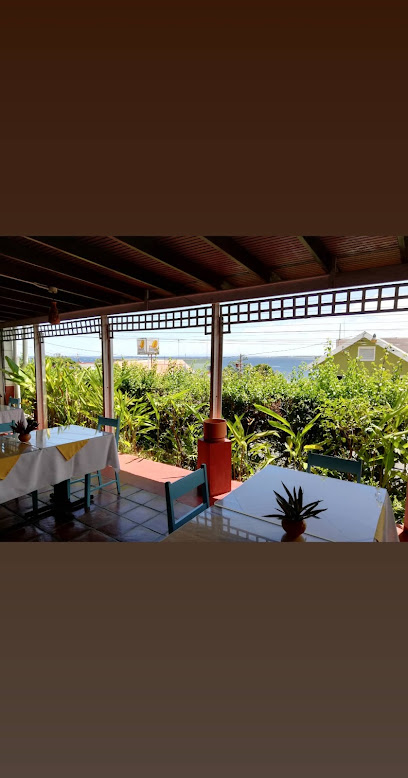
Drifterz Bar And Grill
Experience the vibrant flavors of the Caribbean at Drifterz Bar And Grill, your go-to destination for delicious food and a lively atmosphere in Scarborough.
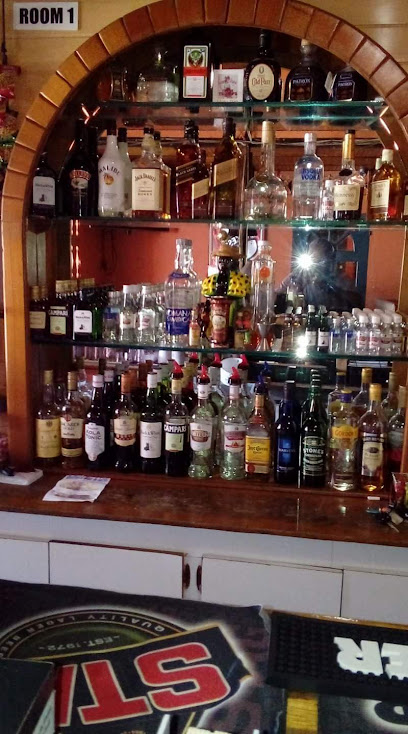
Oasis Salad Bar & Grill
Savor fresh, healthy dishes at Oasis Salad Bar & Grill in Scarborough, where vibrant flavors meet friendly service in a welcoming atmosphere.
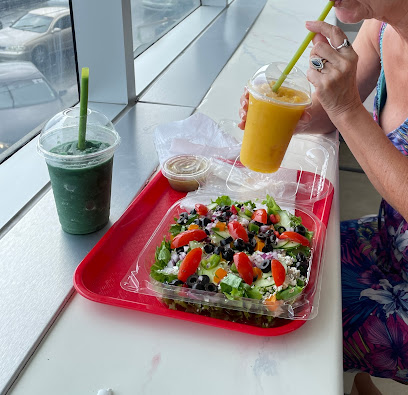
Cafe Havana
Discover the flavors of the Caribbean at Café Havana, a vibrant restaurant in Scarborough offering fresh local cuisine and stunning views.
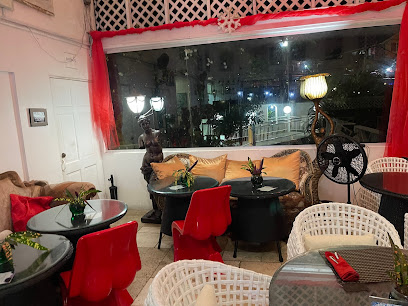
Our Boys Steel Orchestra
Discover the heart of Trinidad Tobago at Our Boys Steel Orchestra, where steelpan music and local culture unite for an unforgettable experience.

Aquarius Sports Bar
Experience the vibrant spirit of Scarborough at Aquarius Sports Bar, where refreshing drinks and local culture come together in a lively atmosphere.
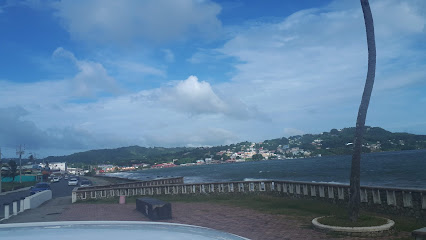
Wagon Wheel Restaurant and Bar
Discover the vibrant flavors of Tobago at Wagon Wheel Restaurant and Bar, where local cuisine meets a lively atmosphere in a stunning setting.

D' Cocoyea Lounge
Experience the vibrant nightlife at D' Cocoyea Lounge in Scarborough, where delicious cocktails and local culture come together for an unforgettable evening.

FUSION SPORTSBAR & GRILL
Fusion Sportsbar & Grill in Scarborough offers a perfect blend of sports excitement and delectable grill cuisine in a vibrant atmosphere.

I.O.M.A Bar
Experience the lively spirit of Scarborough at I.O.M.A Bar, where refreshing drinks and friendly atmosphere await you.
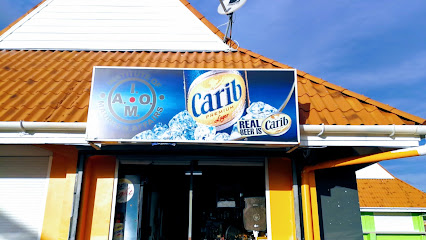
Zaylon Enterprise
Discover Zaylon Enterprise in Scarborough, a unique clothing supplier and cocktail bar blending fashion and flavor for an unforgettable experience.

Caribbean cuisine in tobago
Experience the vibrant culinary culture of Tobago, where Caribbean flavors and local traditions create unforgettable dining moments.

Local Phrases
-
- HelloWa gwaan
[wah gwaan] - GoodbyeLater
[lay-ter] - YesYes
[yes] - NoNah
[nah] - Please/You're welcomePlease/No prob
[pleez/no prob] - Thank youTank yuh
[tank yuh] - Excuse me/SorryPardon me/Sorry
[pah-dun me/sorry] - How are you?How yuh doin?
[how yuh doin] - Fine. And you?Irie. An yuh?
[eye-ree. an yuh] - Do you speak English?Yuh speak English?
[yuh speak english] - I don't understandAh doh understan
[ah doh understan]
- HelloWa gwaan
-
- I'd like to see the menu, pleaseLemme see de menu, please
[leh-mee see deh menu, please] - I don't eat meatAh doh eat meat
[ah doh eat meat] - Cheers!Cheers!
[cheers] - I would like to pay, pleaseAh wah pay, please
[ah wah pay, please]
- I'd like to see the menu, pleaseLemme see de menu, please
-
- Help!Help!
[help] - Go away!Geh way!
[geh way] - Call the Police!Call de Police!
[call de police] - Call a doctor!Call ah doctor!
[call ah doctor] - I'm lostAh lost
[ah lost] - I'm illAh feelin sick
[ah feelin sick]
- Help!Help!
-
- I'd like to buy...Ah wan buy...
[ah wan buy] - I'm just lookingAh jus lookin
[ah jus lookin] - How much is it?How much dat?
[how much dat] - That's too expensiveDat too much
[dat too much] - Can you lower the price?Yuh cud drop de price?
[yuh cud drop de price]
- I'd like to buy...Ah wan buy...
-
- What time is it?What time it is?
[what time it is] - It's one o'clockIt one o'clock
[it one o'clock] - Half past (10)Half ten
[half ten] - MorningMawnin
[mawnin] - AfternoonEvenin
[evenin] - EveningEevin
[ee-vin] - YesterdayYestaday
[yes-tuh-day] - TodayToday
[today] - TomorrowTomorrow
[tomorrow] - 1One
[wun] - 2Two
[too] - 3Tree
[tree] - 4Fo
[fo] - 5Five
[fiv] - 6Six
[siks] - 7Seven
[sev-un] - 8Eight
[ate] - 9Nine
[nine] - 10Ten
[ten]
- What time is it?What time it is?
-
- Where's a/the...?Wey deh...?
[wey deh] - What's the address?Wey deh address dey?
[wey deh address dey] - Can you show me (on the map)?Yuh cud show me (on de map)?
[yuh cud show me (on de map)] - When's the next (bus)?Wen de next (bus) comin?
[wen de next (bus) comin] - A ticket (to ....)Ah ticket (to ....)
[ah ticket (to ....)]
- Where's a/the...?Wey deh...?
History of Scarborough
-
Scarborough, located on the island of Tobago, was originally inhabited by the indigenous Carib and Arawak tribes. These early inhabitants lived off the land and sea, developing a rich culture and tradition that laid the foundational history of the region. Their presence is still felt today through archaeological sites and cultural artifacts that offer a glimpse into their way of life.
-
The colonial era in Scarborough began in the 17th century when European powers vied for control over Tobago. The island saw rule by the Dutch, French, British, and Courlanders (Latvians). Each colonial power left its mark, influencing local architecture, culture, and the socio-political landscape. Fort King George, built by the British in the 1770s, stands as a testament to this era, offering panoramic views of the city and its harbor.
-
The 18th and 19th centuries marked a period of economic boom with the establishment of sugar plantations. The demand for labor brought about the transatlantic slave trade, with thousands of African slaves brought to work the plantations. This dark chapter in Scarborough's history is remembered at various heritage sites and through the descendants of those who endured immense hardships.
-
The abolition of slavery in 1834 was a pivotal moment for Scarborough and Tobago. Freed slaves began to establish their own communities and gradually integrate into the larger society. The economic focus shifted from sugar to cocoa and later to tourism. Scarborough's cultural tapestry became richer as freed individuals contributed their traditions, music, and cuisine to the island's evolving identity.
-
In the 20th century, Scarborough underwent significant modernization. The city became the administrative and commercial hub of Tobago, featuring new infrastructure, schools, and hospitals. The rise of tourism transformed Scarborough into a vibrant destination, attracting visitors with its historical sites, beaches, and cultural festivals such as the Tobago Heritage Festival, which celebrates the island's diverse heritage.
-
Today, Scarborough exemplifies a cultural melting pot where African, European, and indigenous influences converge. The city's markets, culinary scene, and festivals are a testament to this rich blend. The Scarborough Market is a bustling center where locals and tourists alike can experience Tobago's culinary delights, artisanal crafts, and vibrant community life.
Scarborough Essentials
-
Scarborough is the capital city of Tobago, one of the two main islands of Trinidad and Tobago. The nearest international airport is the A.N.R. Robinson International Airport (TAB) located in Crown Point, approximately 11 kilometers from Scarborough. From the airport, you can take a taxi or rent a car to reach Scarborough. There are also domestic flights available from Piarco International Airport (POS) in Trinidad. Alternatively, you can take a ferry from Port of Spain, Trinidad to Scarborough; the journey takes about 2.5 to 3 hours by sea.
-
Scarborough is relatively small and many attractions are within walking distance. For longer distances, taxis and route taxis (shared taxis) are readily available and can be hailed from the street or booked in advance. Public buses operated by the Public Transport Service Corporation (PTSC) run on a schedule and connect Scarborough to other parts of Tobago. Renting a car is a convenient option if you plan to explore the island at your own pace. Bicycles and scooters are also available for rent.
-
The official currency of Trinidad and Tobago is the Trinidad and Tobago Dollar (TTD). Credit cards are widely accepted in hotels, restaurants, and larger stores in Scarborough, but it is advisable to carry some cash for smaller establishments and markets. ATMs are available throughout Scarborough where you can withdraw local currency using international debit or credit cards. Currency exchange services are also available at banks and some hotels.
-
Scarborough is generally a safe destination for tourists, but it is important to take standard precautions. Avoid walking alone at night in unfamiliar areas and be cautious with your belongings in crowded places such as markets. Areas with higher crime rates include parts of downtown Scarborough and isolated beaches. It is recommended to use reputable transportation services and avoid displaying valuable items in public.
-
In case of an emergency, dial 999 for police assistance, 990 for fire services, and 811 for medical emergencies. The Scarborough General Hospital is the main medical facility in the area, providing emergency and general healthcare services. Pharmacies are also available for minor health issues and over-the-counter medications. It is advisable to have travel insurance that covers medical emergencies.
-
Fashion: Do dress casually and comfortably, but avoid wearing overly revealing clothing, especially in more conservative areas. Religion: Do respect local religious practices and dress modestly when visiting churches or attending religious events. Public Transport: Do be patient and polite with drivers and fellow passengers. Don’t eat or drink on public buses. Greetings: Do greet people with a friendly 'Hello' or 'Good day.' Handshakes are common, especially in formal settings. Eating & Drinking: Do try local dishes and drinks, and be open to experiencing the local cuisine. Don’t refuse food or drink offered by locals, as it may be considered impolite.
-
To experience Scarborough like a local, visit the Scarborough Market where you can buy fresh produce, local crafts, and traditional Tobago goods. Engage with locals; they are often friendly and willing to share insights about the island's history and culture. Don’t miss visiting Fort King George, which offers panoramic views of the town and harbor. For a unique experience, attend the annual Tobago Heritage Festival to enjoy traditional music, dance, and cuisine.
Trending Landmark in Scarborough
-
Chaguaramas Boardwalk
-
Mount St. Benedict Abbey
-
Fort King George
-
Tobago Plantations
-
Lopinot Historical Complex
-
Galera Point Lighthouse
-
Starfish Tobago
-
Argyle Falls
-
Port of Scarborough
-
Scarborough Botanical Garden
-
Fort Bennett
-
La Vigie Paramin Lookout
-
Shaw Park Cultural Complex
-
Fort Milford
-
I Love Tobago Sign
Nearby Cities to Scarborough
-
Things To Do in Sangre Grande
-
Things To Do in Arima
-
Things To Do in Tunapuna
-
Things To Do in Port of Spain
-
Things To Do in Chaguanas
-
Things To Do in Couva
-
Things To Do in Princes Town
-
Things To Do in San Fernando
-
Things To Do in Westerhall
-
Things To Do in Grenville
-
Things To Do in Sauteurs
-
Things To Do in Point Fortin
-
Things To Do in Guava
-
Things To Do in Gouyave
-
Things To Do in Victoria









